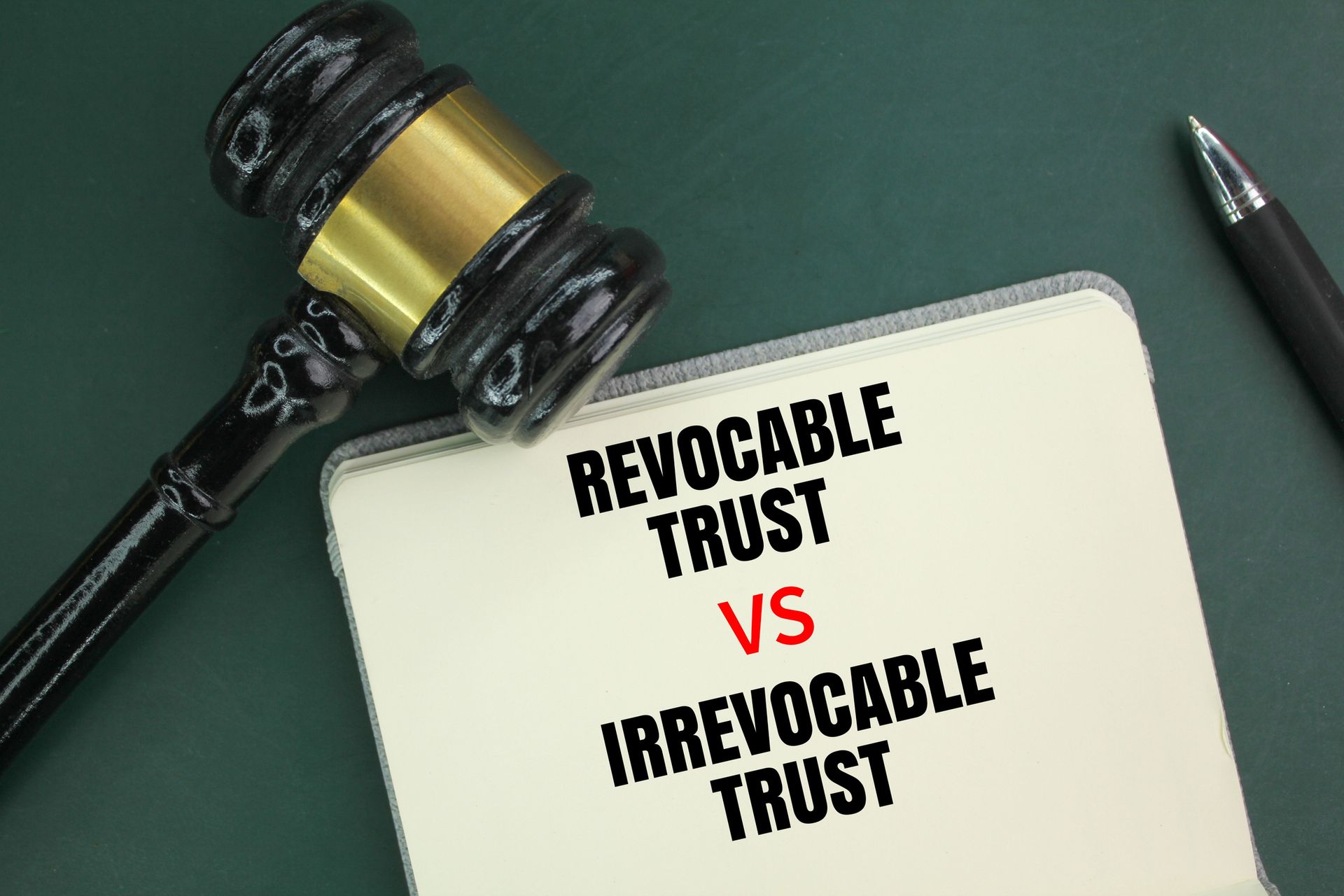Revocable vs. Irrevocable Trusts: What’s the Difference?
When it comes to estate planning, understanding the difference between revocable and irrevocable trusts is essential to ensuring your assets are protected and distributed according to your wishes. These two types of trusts serve distinct purposes and offer varied benefits, making it important to select the one that best aligns with your goals.

Flexibility and Control
One primary distinction between revocable and irrevocable trusts is the level of control they provide. A revocable trust allows the grantor to modify, amend, or revoke the trust at any time during their lifetime. This flexibility is useful when adapting to changes in personal circumstances, financial status, or family dynamics.
In contrast, an irrevocable trust does not permit changes or revocation once it has been established. This permanency requires thoughtful consideration to ensure it supports your long-term estate planning objectives.
Asset and Creditor Protection
Revocable trusts offer limited protection from creditors, as the assets within them are still considered the personal property of the grantor. Consequently, they may be subject to legal claims or judgments.
Irrevocable trusts, on the other hand, provide stronger asset protection. Because the assets are no longer owned by the grantor, they are generally shielded from creditors, offering greater preservation for future beneficiaries.
Tax Implications
The tax treatment of trusts can vary significantly depending on the type selected. Assets in a revocable trust remain part of the grantor's taxable estate and offer no direct tax advantages.
By contrast, transferring assets into an irrevocable trust can help reduce or eliminate estate taxes. Since the assets are no longer part of the grantor's estate, this strategy may yield notable tax savings.
Medicaid Planning
When planning for long-term healthcare costs and Medicaid eligibility, the type of trust can play a pivotal role. Assets held in a revocable trust are considered countable for Medicaid purposes, which could disqualify an individual from benefits.
An irrevocable trust can help preserve eligibility by placing assets outside of the grantor's ownership, allowing the individual to meet Medicaid asset thresholds while safeguarding wealth for beneficiaries.
Privacy and Probate Avoidance
Both trust types can help your estate avoid probate, but they differ slightly in execution. A revocable trust allows for the private transfer of assets upon death without the need for court involvement, simplifying the process for heirs.
Irrevocable trusts also bypass probate and generally keep the details of asset distribution confidential, helping maintain the privacy of both the trust's terms and its contents.
Final Thoughts
Choosing between a revocable and irrevocable trust requires a careful evaluation of your estate planning priorities, including control, asset protection, tax considerations, Medicaid planning, and privacy. The best option will depend on your long-term financial and personal goals.
If you are located in Brooklyn or New York, NY, and are considering establishing a trust, Khalifeh & Strupinsky, P.C. can assist you with creating a legally sound estate plan tailored to your specific needs. Contact our office at 917-717-5007 or fill out our online form to schedule a consultation.











